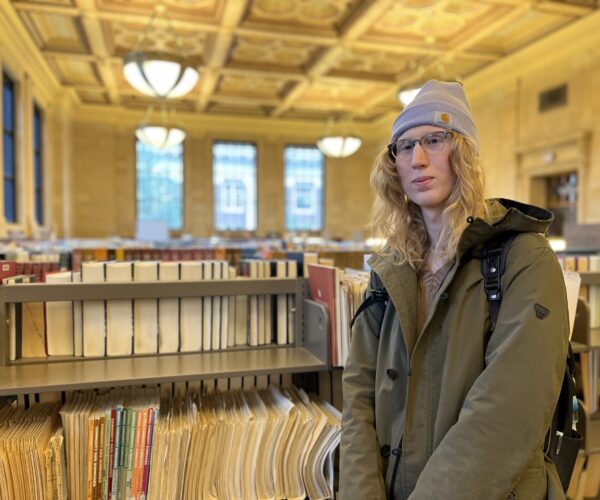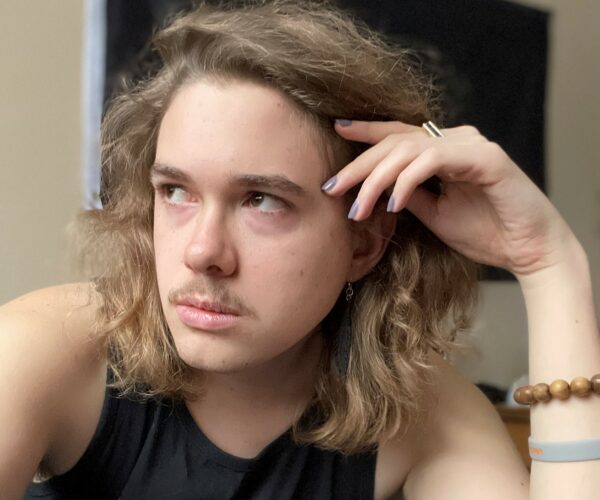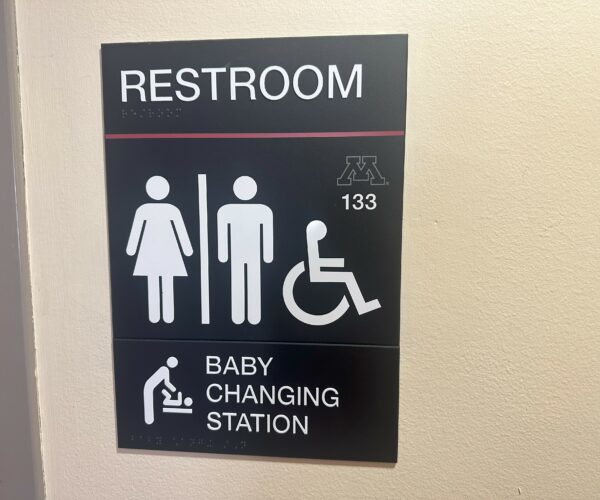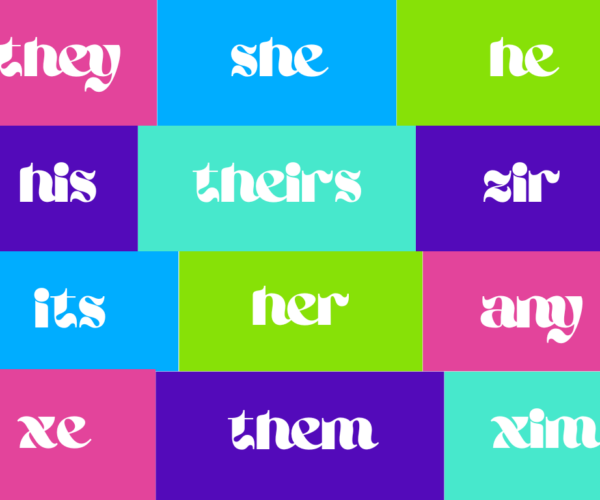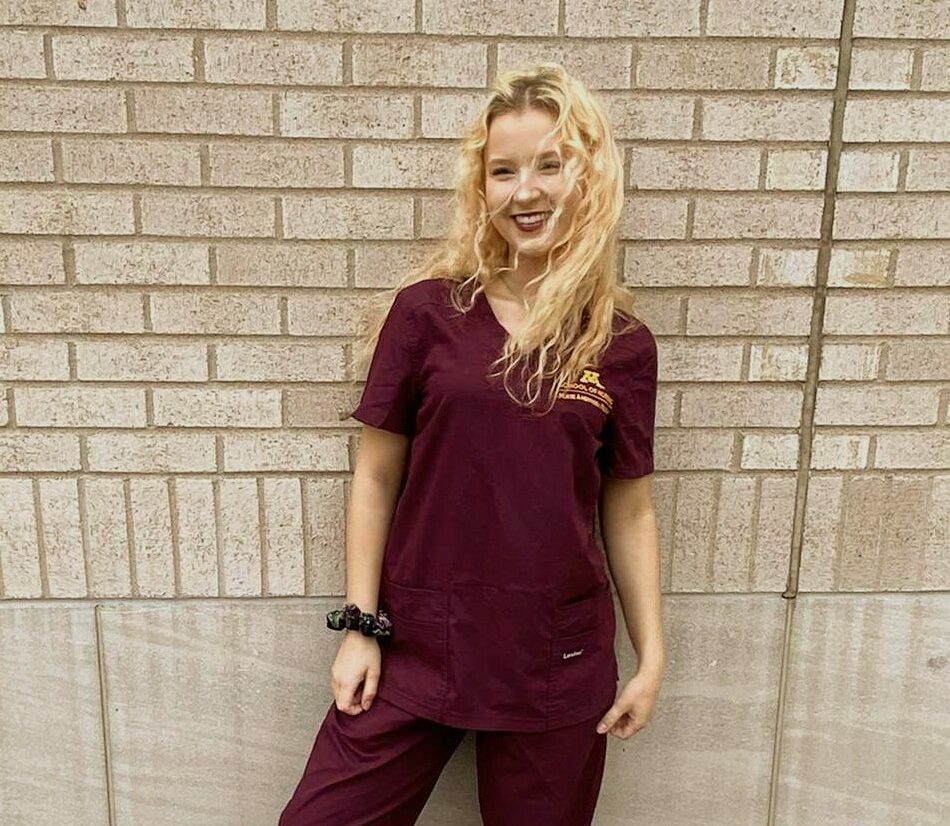By Emma Dehm
Lauren Christian’s decision to become a nurse grew from spending time in hospitals being treated for a chronic disability.
As a patient with Crohn’s disease and chronic recurrent multifocal osteomyelitis (CRMO), Christian understood the difference a good or bad nurse could make.
As a queer person, Christian also understood the importance of identity in developing empathy. So when she entered the University of Minnesota’s nursing program, Christian made one more decision — to become a queer mentor for other nursing students.
“My identity as a disabled person helps me empathize with disabled patients, whether their disability is temporary or chronic, similar to the way my queerness helps me empathize with queer patients,” Christian said.
Christian, who uses she/her pronouns, wishes students and staff in the nursing program would always be aware and inclusive of disabled students. But that’s not always true, she said.
On one particular day, she was suffering from a bad CRMO flare-up when a teacher’s assistant made a comment about everyone in the room being healthy.
“They make assumptions that all of us are able-bodied,” Christian said. “They really just say things like that into a void.”
For queer students, it can feel just as isolating. Christian said one of the most difficult aspects of being a queer student in the nursing program is finding other students who share a queer identity.
Barbara Peterson, the director of the nursing school’s Inclusivity, Diversity and Equity Committee, said more than 90% of the LGBTQ+ students surveyed said they found the school welcoming and inclusive. She also acknowledged that misgendering and disrespect can happen. “In my years of being in this space I have learned that both truths can exist simultaneously,” Peterson said. “It just tells me there is more work to do.”
Regardless, mentors may be a saving grace for many students.
Mentors serve within affinity clusters, which sophomores can volunteer for within the nursing program. Cluster options include BIPOC, men in nursing, first-generation college student, religious minorities and LGBTQ+, which Christian mentors.
The clusters meet four times throughout each semester, including one-on-one mentor meetings and other optional activities. As a mentor, Christian uses this time to spread affirming messages to her mentees. When talking about career exploration, she made sure her mentees knew it was OK not to have their future plans figured out.
“You feel kind of alienated as a queer student in the nursing program because there aren’t that many of us,” said Lily Gordon, who was Christian’s mentor. Christian said her experience with Gordon was one of the reasons she chose to stay in the nursing program.
Christian and Gordon recognize the problems facing LGBTQ+ people in healthcare and acknowledge that representation is important.
“Having a more nuanced background of why queer issues are so important in healthcare – it is really important to have other nursing students understand that,” Gordon said.
Gordon said the lack of representation in nursing, and in healthcare in general, is a cyclical problem. If a majority of students in nursing programs only understand a cisgendered and straight perspective, it can contribute to queer people having poor experiences with healthcare workers, she said. These experiences make queer people reluctant to go into a health-related field.
“A lot of queer people, including myself, are really disillusioned with the healthcare system,” Gordon said. “If you don’t have any good experiences, you’re not going to want to be a part of that.”
Affinity mentors provide spaces for students with different backgrounds and identities to talk with one another. Christian sees the value in these discussions, as they give students a platform to speak on issues that matter to them. She describes it as “a time for people whose voices are typically muted.”
“Identity matters, in healthcare and in anything,” Christian said. “It impacts people’s lived experiences and it impacts the way that they’ve been treated and the way they navigate the world.”
